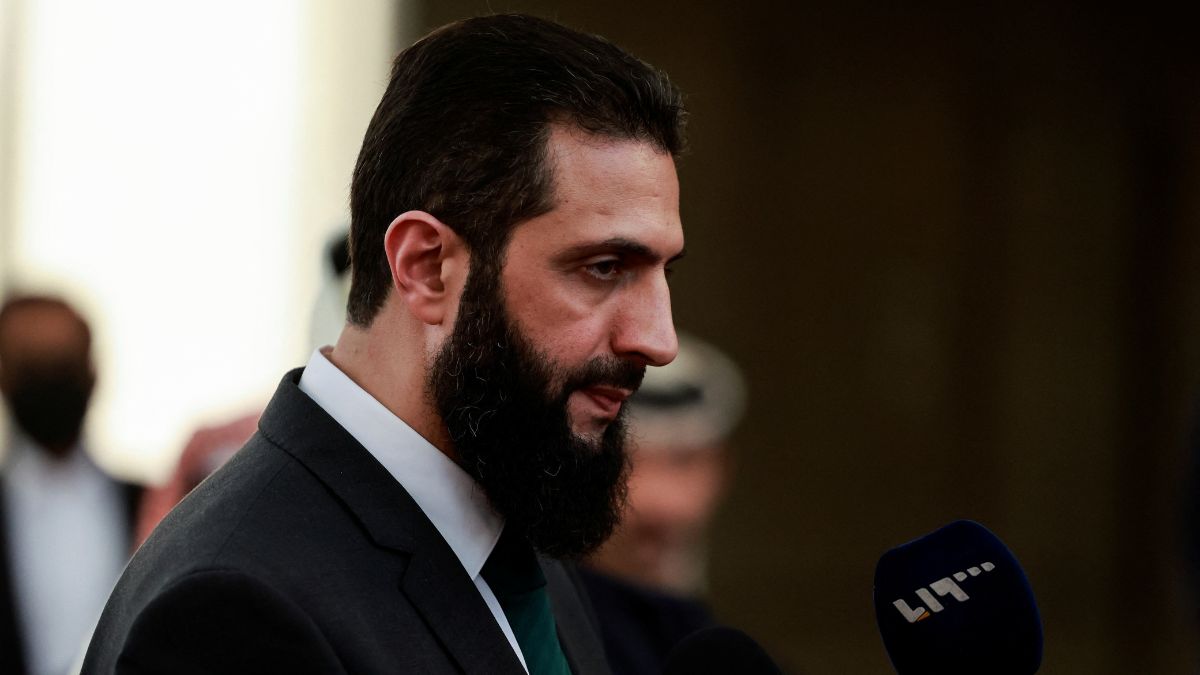Weeks after the rebel groups took over Syria, the former leader of Hayat Tahrir al-Sham (HTS) Ahmed al-Sharaa, was appointed as the president of the country for a “transitional period”. HTS was one of the main rebel groups that led the military operation which ultimately toppled, former Syrian President Bashar al-Assad’s draconian regime. Sharaa has been acting as the de facto leader of the country since December.
The confirmation of his new role came following a meeting of the leaders of the rebel factions on Wednesday. Apart from making this announcement, a military spokesperson also announced a series of other changes. This included the dissolution of the Syrian parliament, the formation of an appointed legislative council, and the cancellation of the country’s 2012 constitution, The Guardian reported.
The Syrian military and security agencies were also dissolved and were replaced by the new security institutions and army. The military spokesperson made it clear, that all armed factions in Syria are to be disbanded since they will be absorbed in the new national army.
But there’s a catch
In an ideal circumstance, the order to dissolve the armed factions would entail the dissolution of the HTS. However, the order did not mention the rebel group’s name, leaving many surprised. In the past, Sharaa has said that the country’s priorities were “filling the power vacuum, preserving civil peace, building state institutions”.
As per the latest announcement, the transition government is supposed to hand over the power to a brand new government by March. However, it is still unclear exactly how this transition will be managed. Last month, while speaking to Al Arabiya, Sharaa said that holding an election in the conflict-ravaged country could take up to four years. Not only this, re-writing the country’s constitution would also take up to three years.
Earlier this month, Sharaa had promised to conduct a national dialogue conference to maintain inclusivity in the post-Assad era. However, he has frequently delayed holding the event. Meanwhile, his closed-door meetings have been mostly with individuals rather than political parties.
Impact Shorts
More ShortsThe challenge of maintaining the factions
In mid-January, the Syrian Ministry of Defence announced that it would be holding a series of consultations with the factions to see how they could come together as unified entities. According to The Guardian, Sharaa along with his minister of defence has held near-daily meetings with rebel factions and given their leaders key posts within the interim government.
However, there are still significant challenges in regards to more radical Islamist rebel factions – many of which make up part of the Turkish-backed Syrian National Army – are not as disciplined as HTS’s rank and file and differ with the group’s ideology. It is pertinent to note that HTS was originally an offshoot of the Syrian branch of al-Qaida and was one of the most powerful Syrian groups at the time of the takeover.
Meanwhile, foreign actors are keeping a close eye to see whether the Syrian regime maintains the trajectory of stability which they more or less have maintained following the ousting of Assad. In the midst of this, the interim government has courted regional powers for support in bolstering its fledgling state and army, seeking foreign funds and legitimacy.
The Syrian authorities have already announced that the new regime’s first foreign trip will be to Saudi Arabia and later to Turkey. During the international visits, the Syrian foreign minister will be accompanied by the defence minister and the director of intelligence.
With inputs from agencies.
)